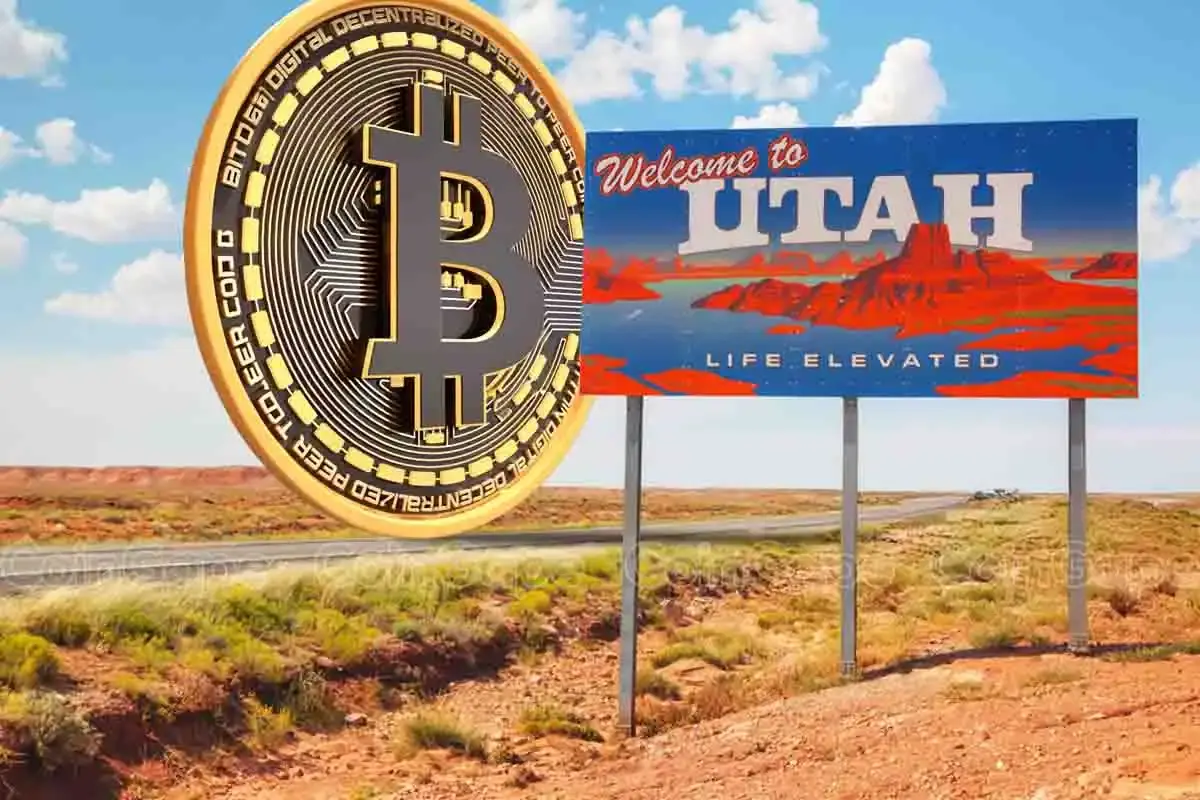Crypto Integration in Utah: A Game-Changer or a Missed Opportunity?
In a significant move, Utah has just passed a crypto bill, HB230, aimed at integrating blockchain and digital innovation into its legal framework. But here’s the twist: the bill originally planned for Utah to create its own Bitcoin reserve, a groundbreaking idea that would have made it the first U.S. state to do so. However, before the bill passed, this Bitcoin reserve provision was scrapped. Let’s break down what this means and why it matters to you.
What Was in the Original Bill?
HB230 aimed to make Utah a pioneer in crypto adoption. It would have allowed the state’s treasurer to invest up to 5% of public funds into Bitcoin, as long as Bitcoin’s market capitalization had been over $500 billion in the previous year. In essence, the state would have had its own Bitcoin stash, acting like a reserve to back Utah’s financial future.
Why Was the Bitcoin Reserve Removed?
The reserve clause was removed before the final approval of the bill, and this is what caught a lot of attention. Why? Because it was the boldest part of the bill. Having a state-backed Bitcoin reserve could have set a huge precedent, attracting more attention to crypto’s role in traditional finance. But despite the removal, the bill still paves the way for Utah to be a crypto-friendly state.
What’s Left in HB230?
Even without the Bitcoin reserve, the final version of the bill still contains some exciting provisions:
- Self-Custody of Crypto: Utah residents will be able to safely store their crypto assets themselves, without government interference.
- Bitcoin Mining: Utah citizens can mine Bitcoin without facing legal restrictions.
- Running Blockchain Nodes & Staking: The bill supports activities like running blockchain nodes and participating in staking, which are key components of the decentralized finance (DeFi) world.
Why Is This Important for You?
- Crypto Is Becoming Mainstream: Utah’s steps show that crypto is no longer a fringe activity. It’s being woven into the legal fabric of states. Knowing how these frameworks work and evolve is critical for understanding the future of digital currencies.
- The Rise of Crypto Reserves: While Utah may have taken a step back, other states like Arizona and Texas are still pushing for Bitcoin reserves. These changes could influence the way Bitcoin and other cryptocurrencies are treated by governments. The direction Utah was going in could signal that states are starting to see crypto as a real, legitimate part of the financial system.
- Opportunities in Crypto-Friendly States: As states begin to embrace crypto, there could be growing opportunities for citizens in these areas. Whether it’s mining, staking, or investing in crypto-related businesses, being informed and ready for such shifts is essential.
- Real-World Impact on Bitcoin and Blockchain: Bills like HB230 reflect how lawmakers are thinking about the long-term role of cryptocurrencies. You need to be aware of these movements because they can affect market prices, influence investment opportunities, and even create new career paths in the blockchain space.
Key Takeaways:
- HB230 is Utah’s move toward integrating crypto into its legal system, even though the Bitcoin reserve idea was removed.
- Self-custody, mining, staking, and running blockchain nodes are now protected in Utah.
- Bitcoin reserves could still happen in other states, like Arizona and Texas.
- Understanding state-level crypto legislation will help you anticipate future market trends and opportunities.
While Utah may have stepped back from one of its boldest moves, this bill sets a clear tone for the growing importance of crypto in the U.S. legal landscape. As a young person invested in the future of blockchain, staying updated on such legislative developments could give you a competitive edge in understanding how the world of digital assets evolves.



